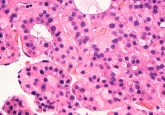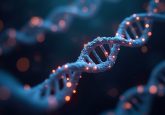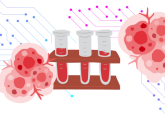Breakthrough blood test detects deadly brain cancers in just 60 minutes

A new quicker and less invasive method for brain cancer detection has been developed as an alternative to surgical biopsy, boasting detection rates of just 1 hour.
This advancement was achieved by a joint team from both the US and Australia, headed by researchers from the University of Notre Dame (IN, United States). Their innovative ‘liquid biopsy’ requires just 100 microliters of blood and can identify biomarkers linked to glioblastoma (GBM), the most common and lethal brain tumor, within an hour. The novel method is a huge step forward for brain cancer diagnosis and currently surpasses all other presently available tests and markers for GBM, coupled with high accuracy.
You may also be interested in:
- Biomarker assay development: qualification vs validation debate
- T-cell receptors could be the answer to detecting high-grade ovarian cancer early
- Biomarker and immunogenicity testing: an interview with Jayaprakash Kotha
The test works by detecting mutated blood biomarkers known as epidermal growth factor receptors (EGFRs), which are overexpressed in cancers such as GBM. Following this, the EGFRs are enclosed within exosomes. To identify the molecules released by cancerous tumor cells, the research team immersed a highly sensitive biochip in an untreated blood plasma sample. The biochip holds antibodies that target the mutated EGFRs present in the exosome and when they bind, a change in the voltage of the plasma solution occurs and triggers a high negative charge, which indicates the possible presence of cancer.
“Our electrokinetic sensor allows us to do things other diagnostics cannot,” explains Satyajyoti Senapati, a Biomolecular Engineer from Notre Dame. “We can directly load blood without any pretreatment to isolate the [exosomes] because our sensor is not affected by other particles or molecules. It shows low noise and makes ours more sensitive for disease detection than other technologies.”
Senapati and their team comment that the biochip can precisely detect the presence of the exosomes and accurately quantify the exosome concentrations, even at concentrations as low as 0.01%.
However, the test is not perfect and still requires development as the mutated EGFRs are not solely connected to GBM, but also to other cancers such as colorectal cancers.
This means the test cannot diagnose every potential case of GBM and it also cannot definitively determine the type of cancer, its location in the body or the stage of the cancer. To develop a more precise test, the team believes they need to study larger groups of GBM patients to identify the unique biomarkers in their blood.
Nevertheless, this platform represents an encouraging advancement in cancer detection, and could pave the way for other highly sensitive ‘liquid biopsies’ to be developed.






